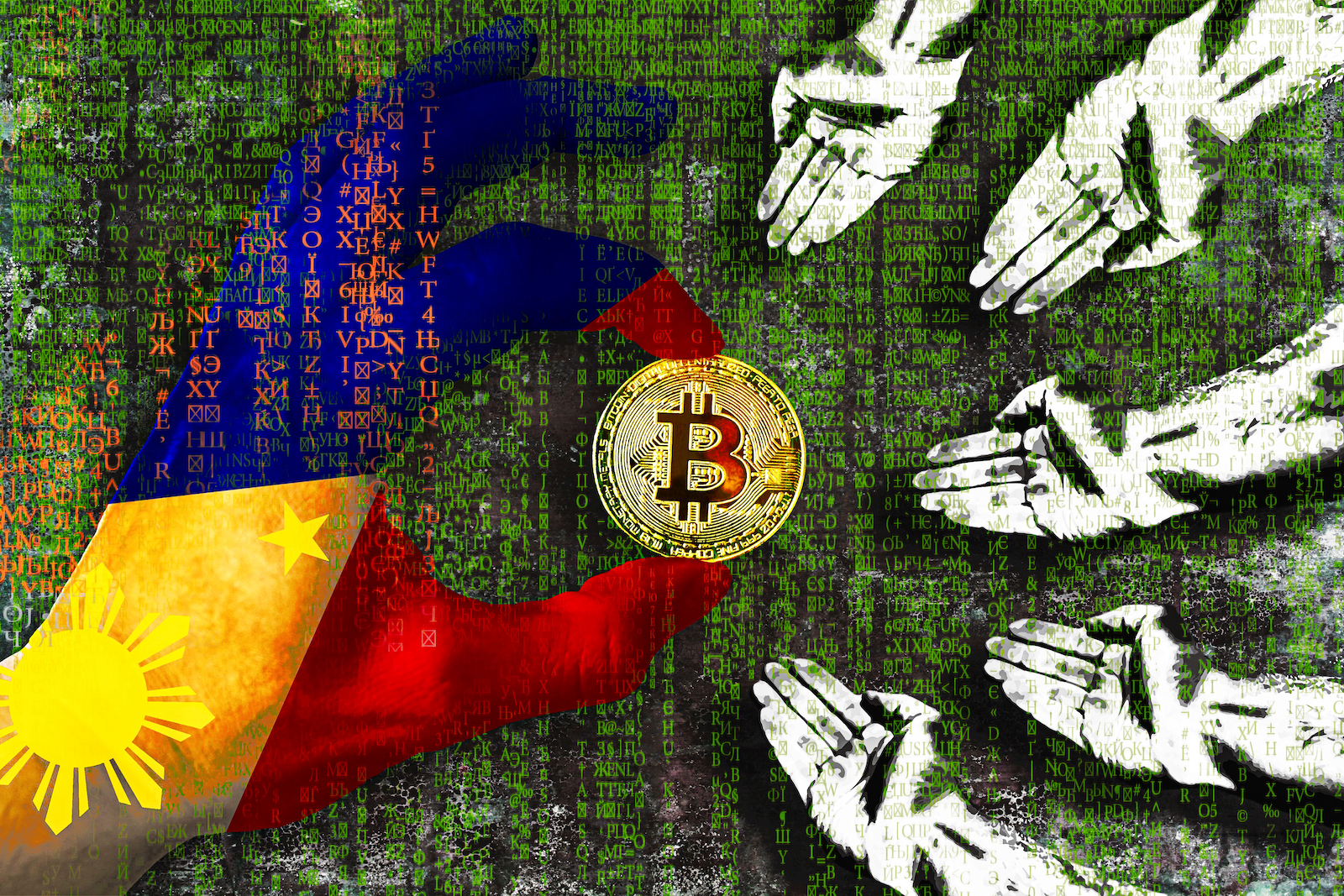
The Philippines Grapples with the Crypto Ecosystem
The Philippine Securities and Exchange Commission (SEC) is currently working on introducing a regulatory framework for cryptocurrencies, aiming to protect investors and maintain the integrity of the financial system. This move comes as the popularity of cryptocurrencies such as Bitcoin and Ethereum continues to grow, and as the SEC cracks down on unregistered exchanges, including the recent ban on Binance.
The SEC’s proposed regulatory framework for cryptocurrencies is a step in the right direction. The current state of the cryptocurrency market is largely unregulated, which can be risky for investors and can lead to illicit activities such as money laundering and fraud. A well-crafted regulatory framework can help address these issues and provide a level of protection for investors.
One of the key challenges facing the SEC is balancing the need for regulation with the need to promote innovation and growth in the cryptocurrency market. Overly restrictive regulations could restrain the growth of the market and drive investors and businesses away, while too lax regulations could lead to the risks mentioned above.
To address this challenge, the SEC could consider a phased approach to regulation, starting with basic requirements for exchanges and gradually increasing the requirements as the market matures. This approach would allow the SEC to monitor the market and adjust regulations as needed, while also providing a level of certainty and stability for investors and businesses.
Another important consideration for the SEC is the impact of regulation on the region. The Philippines is a member of the Association of Southeast Asian Nations (ASEAN), and the country’s financial system is closely linked to that of its neighbors. Any regulatory framework for cryptocurrencies in the Philippines would need to take into account the potential impact on the region as a whole.
In terms of statistics and data, the growth of the cryptocurrency market in the Philippines has been significant. Bangko Sentral ng Pilipinas (BSP), the country’s central bank, reported that cryptocurrency transactions in the country increased in 2023. The BSP also reported that about half of all payments in the country are now made digitally and that the country saw record numbers of foreign remittances in 2023. This growth has been driven by a combination of factors, including increased awareness and adoption of cryptocurrencies, the ease of access to exchanges and trading platforms, and the relatively low barriers to entry. According to CoinGecko, the total crypto market capitalization in the Philippines increased by 108.1% in 2023, from $829 billion to $1.72 trillion. The average daily trading volume in the fourth quarter of 2023 was $75.1 billion, a 91.9% increase from the previous quarter.
However, the growth of the cryptocurrency market has also brought with it several challenges, including the risk of fraud and the potential for market manipulation. In January 2023, the CIDG raided the offices of Oasis Hub and arrested 93 officials and employees for alleged involvement in a cryptocurrency scam. On September 13, 2023, Tamayo, also known as the “Crypto King,” was arrested in Parañaque City for allegedly defrauding at least $1.7 million from multiple victims through a cryptocurrency scam. Tamayo is accused of luring victims with promises of high returns on cryptocurrency investments.
To address these challenges, the SEC has taken several steps, including the recent ban on Binance. The SEC has also issued warnings to investors about the risks of investing in cryptocurrencies and has established a task force to monitor and regulate the cryptocurrency market.
Regarding the impact of regulation on the region, it is important to consider the potential effects on the ASEAN market as a whole. The Philippines is a significant player in the ASEAN economy, and any regulatory changes in the country could have ripple effects throughout the region.
One potential challenge for the SEC is ensuring that any regulatory framework is consistent with existing ASEAN agreements and does not create barriers to trade or investment. The ASEAN region is committed to promoting economic integration and cooperation, and any regulatory framework for cryptocurrencies in the Philippines should be designed with this goal in mind.
Another important consideration for the SEC is the potential for cryptocurrency to support the development of the ASEAN economy. Cryptocurrency has the potential to provide greater access to financial services for the unbanked and underbanked, and to support the growth of e-commerce and other digital industries. By embracing cryptocurrency and developing a regulatory framework that supports its growth, the Philippines and the ASEAN region as a whole could reap significant economic benefits.
Here are some additional points to consider when discussing the potential benefits of the SEC’s proposed regulatory framework for cryptocurrencies in the Philippines.
The proposed framework would require cryptocurrency exchanges to implement strict know-your-customer and anti-money laundering measures, which would help to prevent illicit activities such as money laundering and terrorist financing. This would provide increased protection for investors and help to build trust in the market. The framework would also require exchanges to maintain a certain level of transparency and reporting, ensuring that the market operates fairly and efficiently. This would be achieved through measures such as real-time reporting of transactions, accurate and timely disclosure of information, and the maintenance of accurate and complete records.
The proposed framework would require exchanges to conduct thorough customer due diligence to ensure they are dealing with legitimate customers and not with individuals or entities subject to sanctions or other legal restrictions. This would help to prevent the misuse of the financial system and protect the integrity of the market. The proposed framework would provide greater certainty for businesses operating in the cryptocurrency space by establishing clear rules and guidelines for their operations. This would help to reduce the risk of legal challenges and regulatory uncertainty, encouraging more businesses to enter the market and invest in the sector.
The proposed framework would create new job opportunities in the cryptocurrency space, requiring the establishment of a new class of professionals with expertise in areas such as blockchain technology, smart contracts, and digital assets. This would help drive economic growth and development in the country. The proposed framework would also generate increased tax revenues for the government, requiring cryptocurrency exchanges and other businesses operating in the sector to pay taxes on their profits. This would help to fund public services and infrastructure projects, contributing to the overall economic development of the country.
The proposed framework would help to improve financial inclusion in the country, providing greater access to financial services for individuals and businesses currently underserved or excluded from the traditional financial system. This would be achieved through the use of blockchain technology and other innovative financial tools, enabling more people to access a wider range of financial services. The proposed framework would enhance the reputation of the Philippines as a forward-thinking and innovative country, positioning it as a hub for financial technology and other emerging industries. This would help to attract more foreign investment, talent, and tourism, contributing to the overall economic development of the country.
The SEC’s proposed regulatory framework for cryptocurrencies is a positive step forward for the Philippines and the ASEAN region. By balancing the need for regulation with the need to promote innovation and growth, the SEC can help ensure that the cryptocurrency market in the Philippines is safe, stable, and supportive of the region’s economic development. The SEC’s proposed regulatory framework for cryptocurrencies is comprehensive and well-structured, addressing many of the key challenges facing the cryptocurrency market in the Philippines. By implementing this framework, the SEC can help to promote the growth of the cryptocurrency market, while also protecting investors and maintaining the integrity of the financial system.
Given the Philippines’ significant role in the ASEAN economy, any regulatory changes in the country could have widespread effects throughout the region. By developing a regulatory framework consistent with existing ASEAN agreements and supporting the growth of the cryptocurrency market, the SEC can promote economic integration and cooperation throughout the region.
Overall, the SEC’s proposed regulatory framework for cryptocurrencies is a positive development for the Philippines and the ASEAN region. By balancing regulation with innovation and growth, the SEC can ensure a safe and supportive cryptocurrency market, contributing to the region’s economic development.
